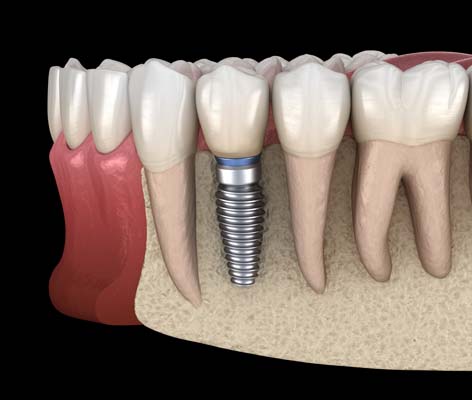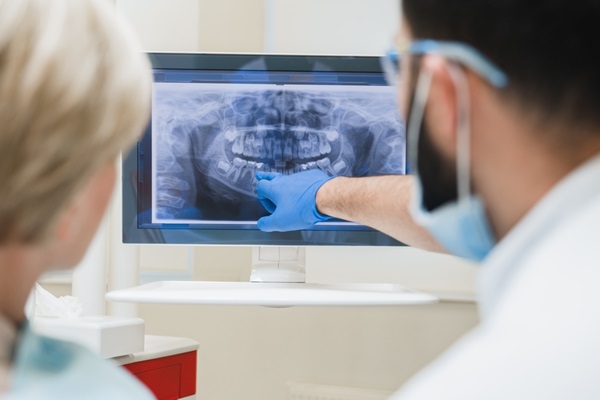When Bone Grafting is Needed for Dental Implants

If your jawbone structure is not robust enough to support dental implants, you may require bone grafting. It's important to understand what bone grafting is and how it is an important part of having dental implants. Let's take a closer look at bone grafting and when you may need them for dental implants.
When do you need dental implants?
If you are missing any teeth or need to have some extracted, you can replace them with dental implants. These are fake teeth that will be screwed into your jawbone to replace the missing teeth. You may want to get implants for cosmetic and self-confidence issues, particularly if you’re missing prominent teeth. However, dental implants can also raise the quality of your life by allowing you to chew, eat, and undergo daily activities that you previously struggled with.
There are also various reasons why you might need to get your teeth pulled. Excessive tooth decay, gum disease, or shattered teeth might cause irreparable damage that can only be remedied by the actual removal of the affected tooth.
When do you need bone grafting?
Sometimes people may have an insufficient amount of bone to support the implants. This is more often the case when teeth have been missing for a long time. To fix this, dentists can add bone to your jawbone through a procedure called bone grafting. There are a couple of specific kinds. Your dentist can add bone immediately after a tooth is removed. This process is called socket preservation. Tooth extraction can cause additional bone loss, which is meant to prevent that. This is also more commonly used when the surrounding bone is weak.Another kind is called sinus augmentation when a bone is added to your upper jaw to strengthen it in preparation for implants. Regardless of the kind, it will take many months for the bones to merge to the point where they can support dental implants.
What to expect with it?
To determine that this is the proper option for you, your dentist will take 3D images of your mouth and examine your bone structure. If your existing structure is insufficient for implants, the additional bone must be added to yours.
The surgery itself is a low-risk procedure. The dentist will cut into your gums, cut a hole in your jawbone, fill it with the bone graft, and seal the incision. During the procedure, you will be under the influence of anesthesia to ensure that you don’t feel any of the process. If you donate bone from a different part of your body to your jaw, that might be included in this process, and your dentist will first harvest a small piece from a predetermined area.
Risks include infection, excessive bleeding, nerve damage, and unsuccessful grafts. However, it is important to note that these are uncommon outcomes and the procedure itself is very safe.
Aftercare
After the surgery, you should expect to be on pain medication and possibly other medications such as antibiotics. You will need to follow a special diet prescribed by the dentist and use a splint. As with all surgeries, it is important to rest to let your body heal. Your first follow-up appointment will be about a week after the procedure.
Ask your dentist about bone grafting
Bone grafting can be a complex dental treatment. Reach out to your dentist to learn more about if bone grafting is a solution for you and what you can expect throughout the process. The more you know, the less likely you'll be surprised by any step along the way.
Request an appointment here: https://spectrumsurgical.net or call Facial Spectrum at (816) 524-4334 for an appointment in our Lee's Summit office.
Check out what others are saying about our services on Yelp: Read our Yelp reviews.
Recent Posts
Research shows that Botox™ appeals to both men and women. Many individuals want to battle the signs of aging. This common treatment helps them look years younger without going under the knife. Learning when to get Botox from your oral surgeon can help you prepare for treatment day.Jaw clenching or teeth grinding at night is…
Searching for the most knowledgeable and skilled oral surgeon in your area can be challenging. But if you find the right dental care provider, you can achieve the enhancements that you want or need. Finding the right provider will need a little effort. Here are some tips you must consider for choosing the oral surgeon…
A facelift can give you a more youthful appearance. Getting this procedure from an oral surgeon can even enhance your oral health. This dental care provider has the knowledge and experience to bring out the results that you want. Here are the main reasons to get your facelift from an oral surgeon.This dental professional is…
A facial surgeon can help you improve your appearance or correct medical conditions. A complete assessment must happen first before creating a custom-fit treatment plan. This healthcare professional aims to help you meet your cosmetic and health goals. Here are the common procedures you should consider from an experienced facial surgeon.This form of surgery can…


